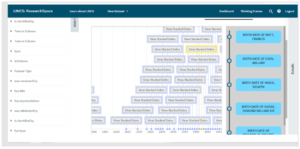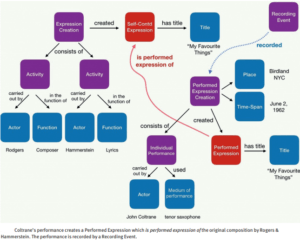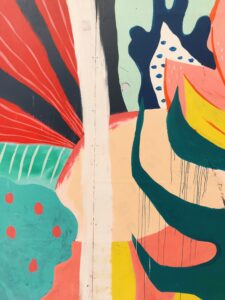— Aliza Ferrone, LINCS undergraduate research assistant — I’ve always found that context changes everything when learning something new, especially when it comes to understanding why that something matters. The first example I can think of is how, for all the general chemistry courses I’ve taken, the concepts never really clicked, nor did I see […]
— Sam Peacock, LINCS undergraduate research assistant — As an English student, I was always told to keep my writing concise. Doing so was often easy because I could assume that the person reading my work would be an English scholar, so their expectations of my writing and the knowledge they brought to it would […]
— Hannah Stewart, LINCS undergraduate research assistant — Over the past two years I’ve had chances to work on many aspects of the Orlando Project, but the work that I’ve consistently found the most engaging has been researching and writing author profiles. Orlando’s profiles are collaboratively authored scholarly histories, which are structured by a custom XML tagset, and which […]
— Jakob McLellan, LINCS undergraduate research assistant — The Digital Humanities (DH) was not something I had a lot of experience with before starting as a LINCS undergraduate research assistant. My work with LINCS pertains to the Early Modern London project, working alongside the Map of Early Modern London (MoEML) team. Part of my job is what LINCS refers […]
— Kate LeBere, LINCS vocabularies and documentation co-op — If each part of a ship were replaced over time, when, if ever, does it become a new ship? Little did Heraclitus, Plato, and others know that the problems posed by the “Ship of Theseus” paradox would continue to vex digital humanists in the twenty-first century. […]
— Evan Rees, LINCS UX co-op — The road to UX for me has been long and winding, and I, much like the LINCS users in the Tube Map in Figma, have found myself at various stations along the way, assessing where I should go next. Initially studying Life Sciences at University of Toronto, I made […]
How working for a DH project has broadened my academic interests and comfort zone — Hannah Stewart, LINCS undergraduate research assistant — I joined the LINCS Project as an undergraduate research assistant, mainly to work on the Orlando Project. This position gave me my first real experience with Digital Humanities (DH). Before starting the job I could barely […]
— Sam Peacock, LINCS undergraduate research assistant — When I began working with ontologies at the LINCS project this summer, my colleagues and I quickly found ourselves asking exasperating questions like “How do you explain the visual concepts present in an artwork to a database?” Even more broad (and maybe ultimately unanswerable) questions like “what is […]
— Sarah Mousseau, LINCS undergraduate research assistant — In the summer of 2020, I was hired as a research assistant with the University of Guelph’s Bachinski/Chu Print Study Collection. Initially, my job entailed the care and maintenance of the objects in the collection with a few other tasks as assigned. Of course, the arrival of the […]
— Thomas Smith, LINCS undergraduate research assistant — To avoid the COVID-19 outbreak, I moved back home from Guelph to the town of Bowmanville, a community with a population of around 40,000 people. My family sold our home of twenty years just before the pandemic, buying a quaint little house in Minden, Ontario, a town […]










